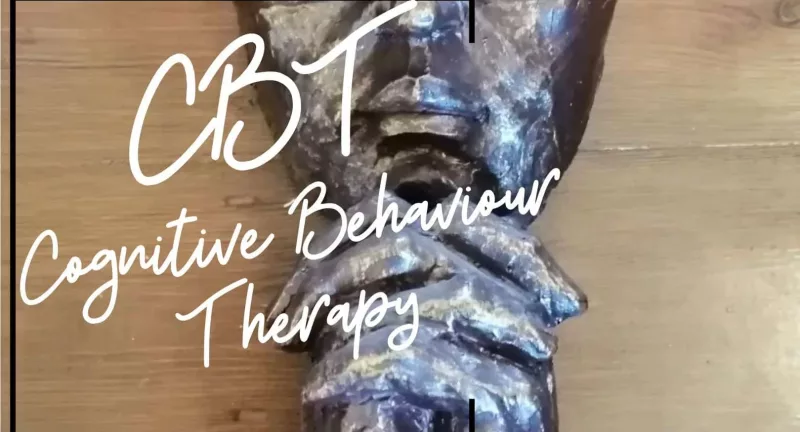
An article by Anna Keyter, Online Psychotherapist
Table of contents
Today, we are presenting a humanistic therapies guide. In today’s fast-paced world, mental health support has become more accessible than ever through online therapy. Among the many therapeutic approaches available, humanistic therapies stand out for their focus on personal growth, self-actualisation, and the inherent worth of every individual. Whether you’re working with an online therapist, online psychologist, or online counsellor, humanistic therapies offer a compassionate, client-centred path to emotional well-being. In this blog post, we’ll explore five key humanistic therapies, including Carl Rogers’ influential approach, and explain how they can be accessed through online counselling or remote counselling. If you’re curious about how an online humanistic counsellor can support your journey, read on!
What Are Humanistic Therapies?
This humanistic therapies guide emphasises the individual’s capacity for self-discovery, personal growth, and self-acceptance. Unlike approaches that focus on diagnosing disorders or analysing unconscious conflicts, humanistic therapies prioritise the client’s subjective experience, emotions, and potential for growth. By fostering a supportive, non-judgmental environment, an online therapist or online counsellor practising humanistic therapy helps clients explore their feelings, values, and goals to live more authentically.
Through online therapy, these approaches are now more accessible, allowing clients to connect with an online psychologist or online humanistic counsellor anywhere. Whether through video sessions, phone calls, or secure messaging, remote counselling brings the warmth and empathy of humanistic therapy to you.
Five Key Humanistic Therapies
Humanistic therapies often adopt a non-directive, collaborative approach, where the therapist acts as a facilitator rather than an authority, helping clients access their inner wisdom. Through online therapy, these approaches are now more accessible, allowing clients to connect with an online psychologist or online humanistic counsellor anywhere. Whether through video sessions, phone calls, or secure messaging, remote counselling brings the warmth and empathy of humanistic therapy directly to you.
Here are five prominent humanistic therapies that you can explore in the humanistic therapies guide:
Person-Centred Therapy (Carl Rogers)
This humanistic therapies guide focuses on Carl Rogers and how it has also come to be known as Rogerian Therapy. Developed by Carl Rogers, person-centred therapy (also called client-centred therapy) is the cornerstone of humanistic psychology. It emphasises creating a safe, empathetic space where clients feel heard and understood. Rogers believed that three core conditions—empathy, unconditional positive regard, and congruence—enable clients to tap into their inner resources for growth. With an online humanistic counsellor, you can experience this nurturing approach remotely, fostering self-acceptance and personal insight through online therapy.
Example: Imagine a client, Sarah, struggling with low self-esteem after a breakup. During her online sessions, her therapist listens attentively, without judgment, allowing Sarah to express her feelings of worthlessness. Through compassionate reflection, the therapist might say, “It sounds like you’re feeling alone and unsure of your value right now.” Over time, Sarah begins to see her own strengths, gaining confidence as she realises she deserves love and respect, not from others, but from herself.
Gestalt Therapy
This humanistic therapies also introduces Fritz Perls. Gestalt therapy, pioneered by Fritz Perls, focuses on the present moment and the holistic integration of thoughts, feelings, and behaviours. It encourages clients to become aware of their immediate experiences and take responsibility for their choices. Techniques like role-playing or the “empty chair” exercise help clients process unresolved emotions. An online psychologist trained in Gestalt therapy can guide you through these dynamic exercises via remote counselling, helping you stay grounded in the “here and now.”
Example: John, an online therapy client, reports feeling “blocked” at work. During the session, his Gestalt therapist guides him through an exercise: imagine he is talking to his inner critic as if it were a person sitting across from him in an empty chair. John begins to verbalise what he might say to this critic, helping him externalise and understand those critical thoughts. Later, he notices feelings of anxiety in his chest and explores what those sensations tell him about his fears.
Existential Therapy
Part of the humanistic therapies guide is existential therapy explores life’s big questions—meaning, purpose, freedom, and mortality. It helps clients confront existential anxieties and create a sense of purpose in their lives. By working with an online therapist specialising in existential therapy, you can reflect on your values and choices, even from a distance, through online counselling. This approach is ideal for those grappling with life transitions or a search for meaning.
Example: Lisa, a woman facing a career transition, feels overwhelmed by anxiety about the future. Her online existential therapist asks her questions like, “What gives your life meaning?” and “What are the values that matter most to you?” Through this dialogue, Lisa realises that her purpose stems from her desire to help others, inspiring her to pursue a new job aligned with her values.
Narrative Therapy
Narrative therapy views people as the authors of their own life stories. It encourages clients to reframe negative narratives and create empowering ones. By exploring the stories you tell yourself, an online counsellor can help you uncover new perspectives and strengths. Online therapy platforms make narrative therapy accessible, allowing you to rewrite your story with the support of an online humanistic counsellor.
Example: Mark perceives himself as a failure because of repeated relationship breakups. His online narrative therapist asks him to tell his story from a different perspective. Through guided questions, Mark begins to see himself not just as someone who has failed, but as a resilient individual who has learned valuable lessons from each experience. They work together to construct a new narrative where Mark is a person who has grown stronger and more self-aware, rather than defined by past setbacks.
Logotherapy
Developed by Viktor Frankl, logotherapy focuses on finding meaning in life, even amidst suffering. It encourages clients to discover purpose through creativity, relationships, or personal values. An online psychologist practising logotherapy can help you explore what gives your life meaning, using remote counselling to guide you toward a more fulfilling existence.
Example: David, undergoing a difficult recovery from illness, struggles with feelings of hopelessness. His online logotherapist guides him to reflect on what has given his life purpose in the past — his family, passion for music, or volunteer work. Through discussions and assignments, David realises that reconnecting with his love for music offers hope and a reason to keep moving forward.
Why Choose Humanistic Therapy Through Online Counselling?
Humanistic therapies are particularly well-suited for online therapy because of their emphasis on empathy and connection. An online therapist or online humanistic counsellor can create a warm, supportive virtual environment that feels just as personal as in-person sessions. Whether you’re seeking an online counsellor for existential therapy or an online therapist for person-centred support, humanistic approaches can help you navigate life’s challenges with compassion and clarity.
Getting Started with the humanistic therapies guide
If you’re ready to explore humanistic therapies, finding an online therapist or online counsellor is easier than ever. Many platforms offer access to registered online psychologists and online humanistic counsellors trained in approaches like person-centred therapy, Gestalt, or logotherapy. Start by researching reputable online therapy providers, checking their credentials, and ensuring they specialise in humanistic methods. Whether you’re drawn to Carl Rogers’ empathetic approach or the meaning-focused lens of logotherapy, remote counselling can help you embark on a journey of self-discovery.
Conclusion
At Best Online Therapy, we offer affordable therapy. We work with our clients to find out what they need. Humanistic therapies, from Carl Rogers’ person-centred approach to narrative and existential therapies, offer powerful tools for personal growth and emotional healing. With online therapy, you can connect with an online therapist, online psychologist, or online humanistic counsellor to explore these approaches in a way that fits your life. Remote counselling makes it possible to experience the empathy and support of humanistic therapy from anywhere, helping you unlock your potential and live more authentically.
This is only our humanistic therapies guide. You can read more about the rest of our services here.
Ready to take the next step? Reach out to an online counsellor today and discover the transformative power of humanistic therapy.
References
Defining Humanistic Psychotherapies
Key Takeaways
- The humanistic therapies guide focuses on personal growth, self-actualisation, and the worth of every individual.
- These therapies prioritise the client’s subjective experience in a supportive environment, enhancing emotional well-being.
- Five key humanistic therapies include Person-Centred Therapy, Gestalt Therapy, Existential Therapy, Narrative Therapy, and Logotherapy.
- Online counselling makes these therapies more accessible, providing empathetic support through various formats like video or messaging.
- Finding an online therapist trained in humanistic methods can empower individuals to navigate life’s challenges and foster self-discovery.
Estimated reading time: 7 minutes
- Exploring the Depths of Narrative Therapy: Rewriting the Stories of Our Lives
- Healing Through Your Body: Online Somatic Psychotherapy for Grief and Trauma
- Online Stress Counselling: Find Calm in a Chaotic World
- Welcome to the Healing Journey of Online Internal Family Systems Therapy
- Psychologist Online UK: Someone that works for you
Related Posts
Exploring the Depths of Narrative Therapy: Rewriting the Stories of Our Lives
Ready to reshape your story? Online Narrative Therapy at Best Online Therapy...
Understanding Online Cognitive Behavioural Therapy: How it Works and Why it’s a Game Changer
Struggling with negative thoughts or emotions? Online Cognitive Behavioural...


